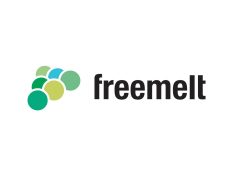Protolabs, a global provider of digital manufacturing, is expanding its additive manufacturing capabilities with the launch of Carbon 3D‘s Digital Light Synthesis (DLS) technology in Europe. By using DLS technology and the rigid high-performance material EPX 82, Protolabs offers additive series production of plastic parts for end products for the first time. This manufacturing method opens up new opportunities for companies in a wide range of industries that previously relied on conventional manufacturing processes such as injection molding.
DLS technology uses liquid polymer resin that is cured layer by layer using UV light. This enables significantly faster production compared to conventional processes such as stereolithography (SLA). Protolabs combines this technology with EPX 82, a material that offers mechanical properties comparable to glass fiber reinforced plastics. It is characterized by high strength, chemical resistance and temperature tolerance up to 130°C, making it suitable for demanding industrial applications.
“The special thing about our latest service and the new EPX 82 material is not the 3D printing technology or the associated resin specifications,” explains Daniel Cohn, Managing Director of Protolabs in Germany. “Rather, it’s the possibilities and benefits for customers that make this launch so exciting and groundbreaking. For the first time, we are experiencing the additive manufacturing of plastic components that can be used directly in series production – and are not primarily intended for use as prototypes. Thanks to our support, companies can obtain finished products in the shortest possible time – without having to produce expensive injection molds.”
In addition to EPX 82, Protolabs is also introducing other materials such as EPX 86FR, FPU 50 and RPU 70, all of which cover specific requirements in different areas of industry.
“Thanks to DLS by Carbon 3D and EPX 82, we can additively manufacture components for the first time that are characterized not only by their durability, high surface quality and the freedom of design that is typical of 3D printing,” explains Dr. Philipp Amend. “At the same time, our customers benefit from the advantages of additive manufacturing – such as design freedom and production speed – and can obtain different designs without having to produce injection molds – and all this for the production of quantities that are common for series production using traditional manufacturing methods.”
To help customers make the transition to these new technologies, Protolabs offers a technical consultancy service that tailors designs to the specific requirements of DLS technology.
“This is not the first time that Protolabs has succeeded in making technology usable in a way that even the manufacturers thought was impossible,” concludes Daniel Cohn. “With this development, we at Protolabs have once again succeeded in establishing additive manufacturing as the future industry standard for production and manufacturing, while at the same time making all the benefits of industrial 3D printing available to the wider market. We are thus building another bridge between one of the most important industrial and manufacturing technologies and the realization of highly complex projects – all thanks to the expertise and experience of our experts at Protolabs.”
Subscribe to our Newsletter
3DPresso is a weekly newsletter that links to the most exciting global stories from the 3D printing and additive manufacturing industry.






















